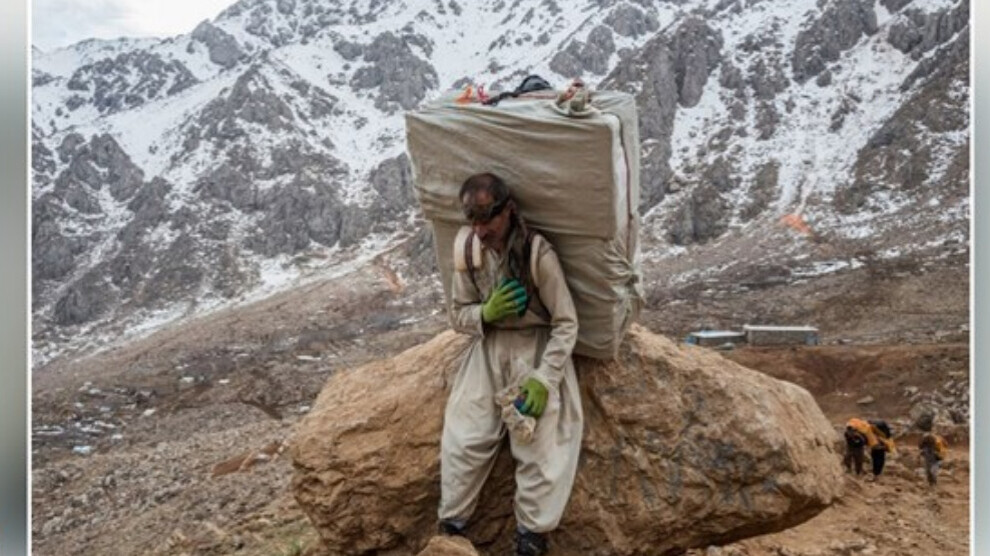Three kolbars killed and 13 injured in May
Four kolbars died and 13 were injured on the border line of Federate Kurdistan Region in May.
Four kolbars died and 13 were injured on the border line of Federate Kurdistan Region in May.

Hengaw Human Rights Organisations known for its works on violation of human rights announced the balance sheet of violations against kolbars, load carriers for daily wage, in the border region during the month of May.
A statement released by Hengaw said that Iranian forces shot directly at kolbars in 14 separate occasions, as a result of which three kolbars were killed and 11 others were injured.
It was also reported that a kolbar was injured as a result of mine explosion and another kolbar died because of an avalanche.
Hengaw also stated that a kolbar was directly targeted by the Turkish soldiers and injured.
The tragedy of the kolbars
East Kurdistan has descended deeper into poverty through the years due to deliberate policies by the Iranian regime and stands out as one of the poorest regions in Iran. Compared to other regions, the area has seen significantly less investment and development has been deliberately curbed. Agriculture and industry weren’t allowed to develop, and as a result unemployment rose to highest in Iran.
Faced with policies of discrimination, oppression and impoverishment, carrying smuggled goods is not a choice but a must for survival.
Kolbar comes from the Kurdish words, “kol” (back) and “bar” (load). Kolbars make their living carrying loads along the perilous border line. Their loads include cigarettes, mobile phones, cloths, housewares, tea and seldomly alcohol. They walk through dangerous terrain to continue this trade between Southern and Eastern Kurdistan. The goods they bring are sold at high prices in Tehran, but the kolbars who risk their lives for them are paid very modestly.
The intermediaries who take the deliveries and find buyers in cities are called kasibkars.
Kolbars and kasibkars range from 13 to 70 years old. Some only finished elementary school, while others are university graduates. They carry loads, because they can’t find any other employment. In the last 5 years, some 300 kolbars and kasibkars were killed in cold blood. There are no absolute statistics available for the deaths.
RELATED NEWS: